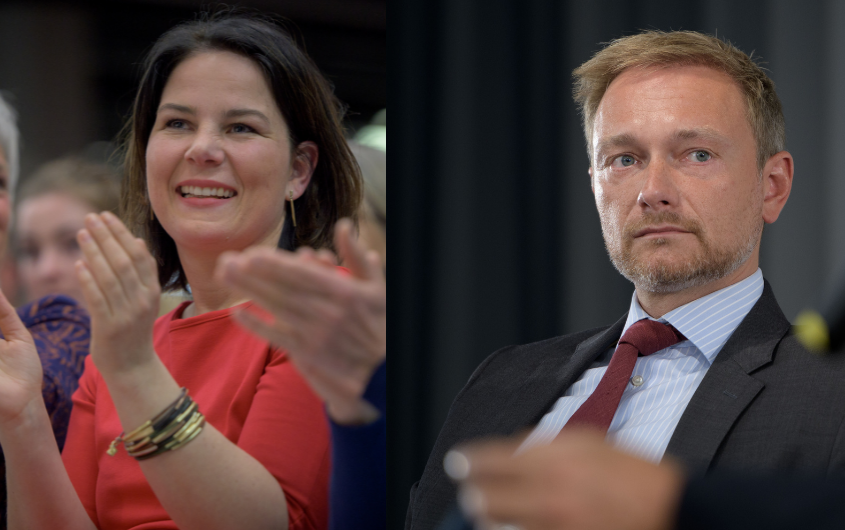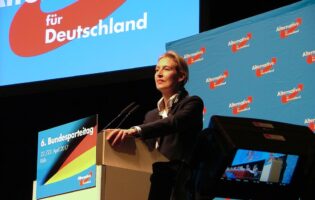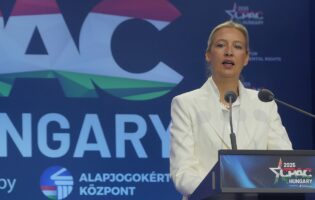
via Wikimedia Commons and Flickr
After the Vote

Jeff Rathke
President of AGI
Jeffrey Rathke is the President of the American Institute for Contemporary German Studies at the Johns Hopkins University in Washington, DC.
Prior to joining AICGS, Jeff was a senior fellow and deputy director of the Europe Program at CSIS, where his work focused on transatlantic relations and U.S. security and defense policy. Jeff joined CSIS in 2015 from the State Department, after a 24-year career as a Foreign Service Officer, dedicated primarily to U.S. relations with Europe. He was director of the State Department Press Office from 2014 to 2015, briefing the State Department press corps and managing the Department's engagement with U.S. print and electronic media. Jeff led the political section of the U.S. Embassy in Kuala Lumpur from 2011 to 2014. Prior to that, he was deputy chief of staff to the NATO Secretary General in Brussels. He also served in Berlin as minister-counselor for political affairs (2006–2009), his second tour of duty in Germany. His Washington assignments have included deputy director of the Office of European Security and Political Affairs and duty officer in the White House Situation Room and State Department Operations Center.
Mr. Rathke was a Weinberg Fellow at Princeton University (2003–2004), winning the Master’s in Public Policy Prize. He also served at U.S. Embassies in Dublin, Moscow, and Riga, which he helped open after the collapse of the Soviet Union. Mr. Rathke has been awarded national honors by Estonia, Latvia, and Lithuania, as well as several State Department awards. He holds an M.P.P. degree from Princeton University and B.A. and B.S. degrees from Cornell University. He speaks German, Russian, and Latvian.
__
Political Dynamics as Coalition Negotiations Begin
The result of Germany’s September 26 election is inconclusive in the sense that the composition of the next government remains unknown. But the situation after the vote tells several compelling stories.
The Social Democratic Party (SPD) finished clearly in first place for the first time in nearly twenty years. The SPD’s 25.7 percent of the vote is the lowest-ever first-place tally in a German federal election, but it matters less than the dramatic improvement of more than 5 points over 2017. For a party that seemed until a few months ago to be drifting inexorably downward in the polls, this recovery will boost the spirits of SPD members. And chancellor candidate Olaf Scholz, who seems to have shown the SPD a way out of the political wilderness, will begin with a significant reservoir of trust as he conducts coalition negotiations. As the largest party in the next Bundestag, Scholz will argue that the SPD should form and lead the next government.
The center-right Union parties (CDU and CSU) had their worst election ever, drawing a combined 24.1 percent and finishing second. In a different political system, that might have meant the immediate resignation of chancellor candidate Armin Laschet. Laschet still has a chance at forming a government, however, and for as long as that prospect remains alive, his party is likely to provide him space and support.
There are only two practical coalition possibilities… In either case, it would be the first three-party coalition in Germany since the 1950s and would represent a bridging of policy gaps unprecedented at the federal level.
The arithmetic is clinical; there are only two practical coalition possibilities: a government led by Scholz with the Greens and the liberal FDP, or a Laschet-led administration with those same two junior partners. In either case, it would be the first three-party coalition in Germany since the 1950s and would represent a bridging of policy gaps unprecedented at the federal level. (A third option—a renewed Grand Coalition, this time led by the SPD with the CDU/CSU in a junior role—is politically unlikely, at least at this stage.) To maximize their influence as king-makers, the Greens and FDP speculated on the evening of the election about direct talks between the two parties which, as FDP leader Christian Lindner put it, campaigned against the status quo.
Talks between the FDP and the Greens before engaging either of the leading parties would be an innovation and could expand the leverage of the smaller parties during a coalition negotiation, but ultimately the parties will have fundamental concerns in mind. For Laschet: what policy compromises can the center-right offer the Greens to entice them into an arrangement in which they are an outlier compared to the closely aligned CDU/CSU and FDP? For Scholz: how far can he go to accommodate the FDP’s fiscal conservatism and anti-tax demands, when the SPD’s and Greens’ principal priorities would require significant new resource commitments? For the Greens’ co-leaders Annalena Baerbock and Robert Habeck: can Laschet offer a deal sweeter than Scholz, and would the Greens’ left-leaning party membership approve a coalition with the center-right when an SPD option was available? And for FDP leader Lindner: is it better to be an outlier in a coalition with the SPD and Greens, striking a figure as the voice of fiscal reason, or to be in a more advantageous position in a cabinet led by a weakened Laschet?
The German government that takes office in the coming months will play a crucial role in the transatlantic relationship and will shape the direction of Europe in a critical period. It will meet the pent-up expectations of Germany’s partners on both sides of the Atlantic, who have been waiting for a clear policy direction from Berlin on issues ranging from Europe’s economic recovery to climate policy to the European approach to China. This election campaign devoted essentially no time or energy to European, transatlantic, and global relationships. As Europe’s indispensable nation, Germany’s election campaign vacation from international issues must soon come to an end.






